PLEASE VIEW ON YOU TUBE. LIKE AND SUBSCRIBE!
EXTRACTS FULL TEXT HERE
NEW MORNING…. A PASTORAL DREAM
With his tongue very firmly in his cheek, and using a vocal delivery similar to the ‘softened’ Nashville Skyline tone, Dylan depicts a ‘winter wonderland’ while confessing his love to a girl called ‘Winterlude’, who he refers to as …darlin…, …my little apple… and then …my little daisy… cranking up the corniness as he rhymes these terms of endearment with …no quarrelin’… , …chapel… and …lazy… He clearly delights in this feast of self parodic humour. Lines like …you’re the one I adore/ Come over here and give me more… and the way he refers to the girl as …the angel beside me… add to this effect. In the second and third verses the narrator celebrates the snowy scene, as he implores his love to …come out when the skating rink glistens… while …the snow is so cold, but our love can be bold… Later …the moonlight reflects from the window/ While the snowflakes they cover the sand… All this is observed from the comfort of home, where the lovers sit by a log fire. There is certainly a sense here that Dylan (as on Self Portrait) is mocking his own public image and taunting his fans. Winterlude presents another dreamscape in which the narrator drifts back in his mind to his childhood. It presents his rural retreat as cosy and Disneyfied. But as both the narrator and his sceptical audience must both know, it may not be long before the ‘snow white’ scene will melt away.
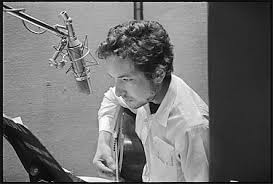
LOVE SONGS ON NEW MORNING
New Morning includes several rather dreamy love songs, indicating that it is the overwhelming affection he feels for a particular woman that keeps the narrator happy in his rural retreat. One More Weekend is a joyful if rather inconsequential twelve bar blues in which the narrator expresses his lustful desire to spend ‘one more weekend’ with the object of his desire. The fact that he is only asking for such a brief liaison indicates that rather than confessing true love, he is playing the part of a seducer, announcing that …You’re the sweetest gone mama this boy’s ever gonna get… He urges her to …leave all the children home… so they can be alone (for obvious reasons). He promises her a weekend of lustful fun in which they will be …flyin’ over the ocean… Bigging himself up, he declares that he is …slippin’ and slidin’… (a reference to a sexually provocative Little Richard song) …like a weasel on the run… Later he tells her that he is …like a rabbit in the wood… and tells her that …like a needle in a haystack, I’m gonna find you yet… referring to the place where countryside lovers traditionally explore their passion. The song is another parodic exercise, with Dylan indulging in typically suggestive blues imagery, and cannot be said to be anything but a few minutes of frothy fun.
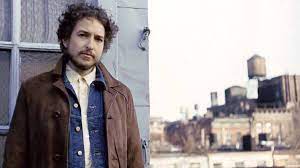
The remaining lines in the first verse consist of the self effacing confession that …The man in me will do nearly any task/ But as for compensation, there’s a little he will ask… In verse two we hear that …Storm clouds are raging all around my door/ I think to myself I can’t take it any more… a simple metaphor reminiscent of the standard Stormy Weather, written by Harold Arlen and Ted Koehler. In the third verse the narrator becomes even more self deprecating: …The man in me will hide sometimes to keep from being seen/ But that’s just because he doesn’t want to turn into some machine… The song is so effective because the narrator sounds so genuinely determined to hold onto his basic humanity. We will never know whether his pleas to the woman will produce a response. Indeed, we find out nothing about the woman herself. The song is concerned entirely with the man’s inner struggle with his own identity.
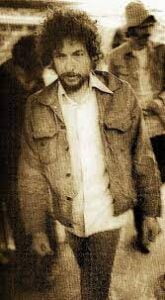
Between the 1978 tour and 2011, the song featured regularly in Dylan’s set lists. The 1978 version of the song – first developed during the rehearsals at Rundown Studios in LA in late 1977 – features variant lyrics which shift the tone of the song considerably. The ‘storm clouds’ line is replaced by the decidedly more extreme …Lost on the river of no return… (a reference to Otto Preminger’s 1954 western starring Robert Mitchum and Marilyn Monroe). The song now contains a disarmingly honest confession of infidelity: …I know you got a husband, and that’s a fact/ But, if you don’t wanna turn me loose, please cover my tracks… Whether the insertion of these lines had any relevance to Dylan’s personal situation at the time is unknown. But in later years the original lyrics returned. The song has inspired a plethora of cover versions, including a striking reggae version by Matumbi (1976) which was the model for Joe Cocker’s soulful reading of the same year. Since the release of The Big Lebowski, it has become something of an ‘Americana standard’ with covers by Cracker, Jason Isbell, Emma Swift and others.
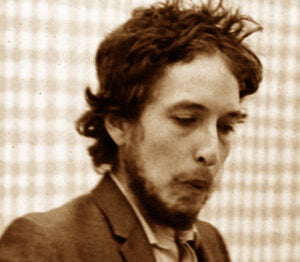
The most cheerful and heart warming song on the album is undoubtedly the title track, with its rousing repeated chorus: …So happy just to see you smile (later …to be alive…) underneath that sky of blue/ On this New Morning (repeated) with you… As with The Man in Me the other lyrics are minimal. Here they paint a rosy and nostalgic picture of the rural idyll. The infectious rhythm of the song – propelled by Russ Kunkel’s spirited drumming – suggests that the lovers are driving down a rather bumpy country road in an old jalopy in some dreamlike version of the past …Can’t you hear that rooster crowin’ / Rabbit runnin’ down across the road/ Underneath the bridge where the water flowed through… It is as they are driving through a picture postcard. In many ways the song recalls the tearful joyousness of Louis Armstrong’s monumental recent hit (What a) Wonderful World.

Without her presence, the entire edifice could clearly come crashing down. Thus the song symbolises both the hope and fear that are interwoven throughout the songs of the album. Dylan’s use of a deliberately minimal syntax here positions him as a humble supplicant. Whereas once – in the love songs of Blonde on Blonde– he presented himself as a humorously detached and often cynical participant in multiple love affairs, here he presents is a simple guy, a ‘one man woman’, who is so in love that without her his world will collapse. His sky will fall in. Winter would not be succeeded by spring. By positioning himself like this, and by utilising the simplest language possible, Dylan celebrates the directness of such devotional love with humble grace and precision. But what gives the song its inner power is that the narrator is in fact a fragile being who freely admits his dependence on the woman.
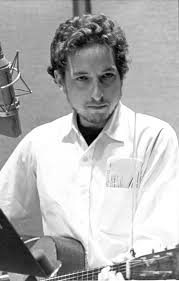
New Morning seems to be bound together by the idea that simple faith in love can bring redemption. Dylan invests this concept with a dreamy reverence throughout the album, inviting us rather shyly into his ‘secret world’. In the last two tracks, however, he moves, perhaps rather tentatively, into more conventionally religious areas. Three Angels is a spoken word poem which is the most dreamlike of all the tracks on the album. It takes us back to the idealised childhood Christmas of Winterlude. The music – which is dominated by washes of ‘dreamy’ organ – resembles the backing for spoken word ‘confessionals’; a popular sub-genre of country music in which the singers delivered moral lessons to their audience. Examples are Wink Martindale’s Deck of Cards and the sides that Hank Williams recorded as ‘Luke the Drifter’. Dylan uses this form knowingly, but with his tongue firmly in his cheek.
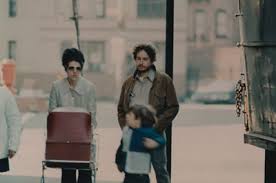
This final question appears to sum up the entire existence of the ideal dream world depicted in the album. It suggests that fantastical events are occurring just beneath the surface of the everyday world. In that ‘hidden’ realm, ordinary life is illuminated by a kind of divine light which creates a bucolic paradise. The ‘music’ which the angels play is the soundtrack to this paradisiacal state, but Dylan suggests here that most people are oblivious to it. This suggests that humans can create a kind of ‘heaven on earth’ if only they can become more aware of the wonders of existence itself. Yet a strong doubt is expressed that anything will really change. The ‘angels’ are, after all, fake human creations presumably fitted with repeating tapes in order to draw shoppers into the commercial world of Christmas shopping. Thus the song, and the whole album, examines how human being can balance materialism with spirituality. Three Angels takes a rather left-field, skewed look at this fundamental human dilemma and concludes that, although the narrator of these songs may have entered a blissful state, happiness itself is a decidedly fragile state. The song’s final question is also ominous. Dylan appears to be suggesting that unless we ‘wake up’ and listen to the ‘divine music’ of the angels – which represents the possibility of human beings rising to a higher state of consciousness – then we as a race may be doomed.
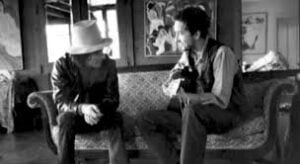
After this, there is, it seems, nothing left to do but pray. The final track, Father of Night is based on the Jewish prayer Amidhah, which is always recited in a standing position. The supplicants are expected to praise God, ask Him for help and give thanks. One English translation runs:
…Bless us, our Father, one and all, with the light of Your face. For by the light of Your face you have given us, Lord our God, a Torah of life and love of kindness, charity, blessing, mercy, life and peace. May it please You to bless Your people Israel at all times and in every hour with Your peace…
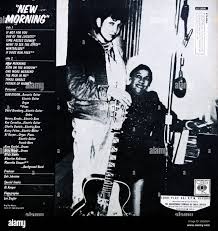
Dylan’s song is a haunting little three verse piece, lasting only a minute and a half. He plays a repeated rhythmic line on the piano and is accompanied by the female vocalists providing atmospheric …ooohs… in between the verses. As on John Wesley Harding he uses deliberately archaic terms such as ‘taketh’, ‘teacheth’ and ‘shaketh’. The word ‘father’ appears at the beginning of each line except the fourth line of each verse. The song certainly praises God and gives thanks, although the narrator does not specifically ask for help. The ‘father’ portrayed here is not only identified as a beneficent force. He is said to take …the darkness away… to teach birds to fly, to be a …builder of rainbows up in the sky… to build mountains and shape clouds. He is not only a …Father of time, father of dreams, Father who turneth the rivers and streams…. and the father of grain, wheat, cold, heat, air and trees but also the …father of loneliness and pain… Although the song ends by dutifully stating that He is the …Father of whom we most solemnly praise… the narrator makes no demands on the deity. The song is a simple statement of belief in a patriarchal but non denominational God who controls all aspects of life and the universe. This God may …dwell in our hearts and our memories… but He is depicted as non judgemental and mainly benevolent.
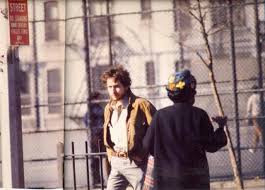
Father of Night may be Dylan’s first avowedly ‘religious’ song but the God he praises seems to be closer to the ‘Great Spirit’ of Native American belief than a vengeful and cruel Jehovah figure. He is the God, perhaps, who watches over the sojourn in Paradise which is depicted in New Morning – a reassuring but ultimately distant figure. But what is most striking about this final coda to the album is its essential humility. Here is Dylan, the creator of so many linguistic ‘mountains and clouds’ and fantastical scenarios, apparently ‘bowing down’ and finally admitting that he feels he is subject to a higher power. Thus his pastoral dream world could at any time be swept away, leaving him to confront far more complex existential questions than he does in the songs of this period. The world of New Morning is thus a very fragile one and one which Dylan finally has to admit that he has little control over.
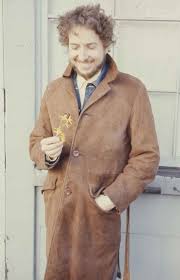


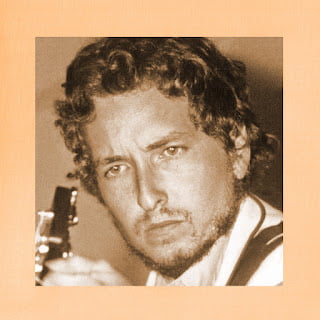
Leave a Reply